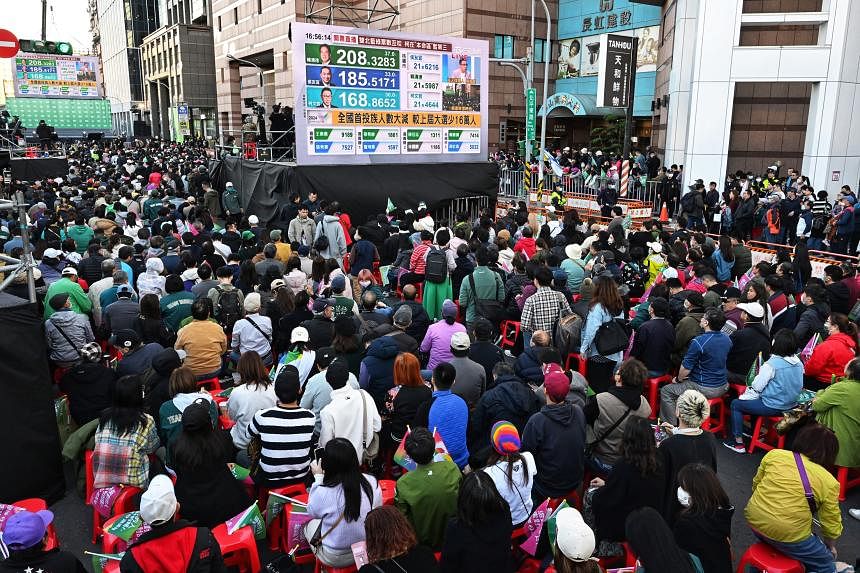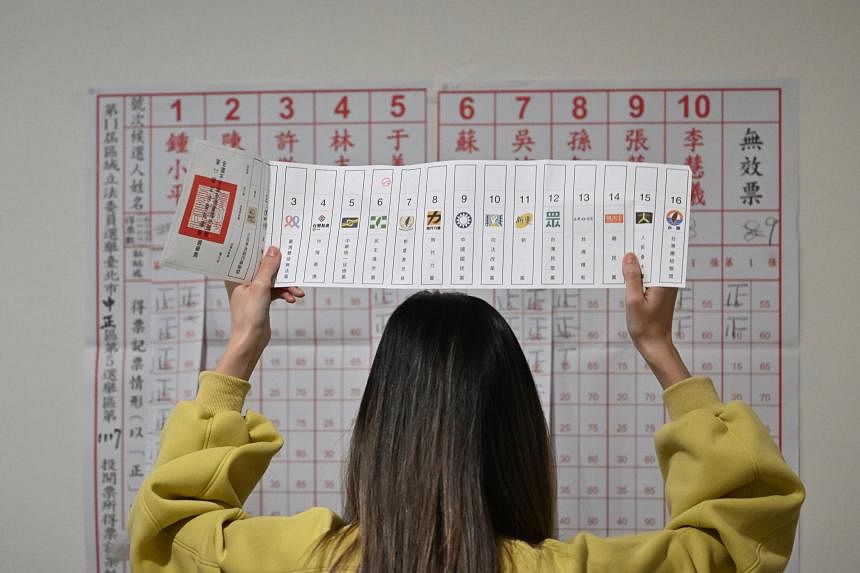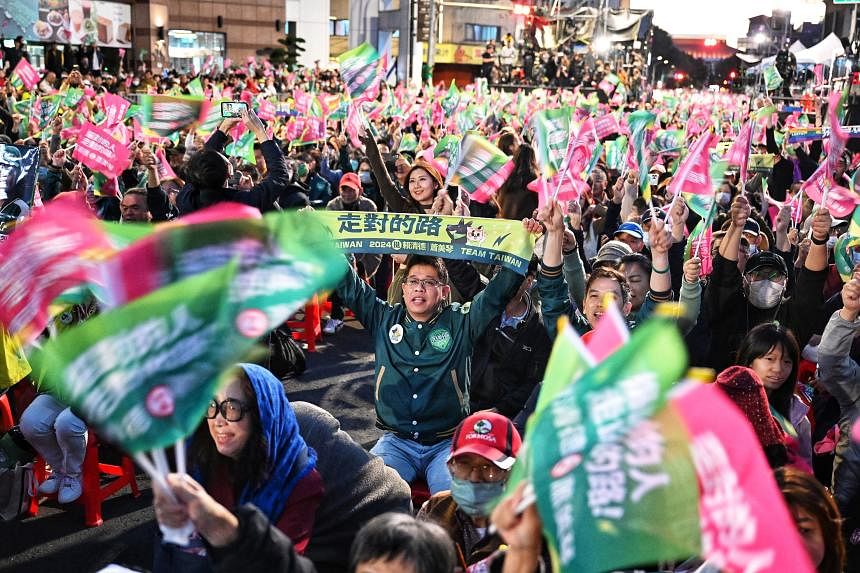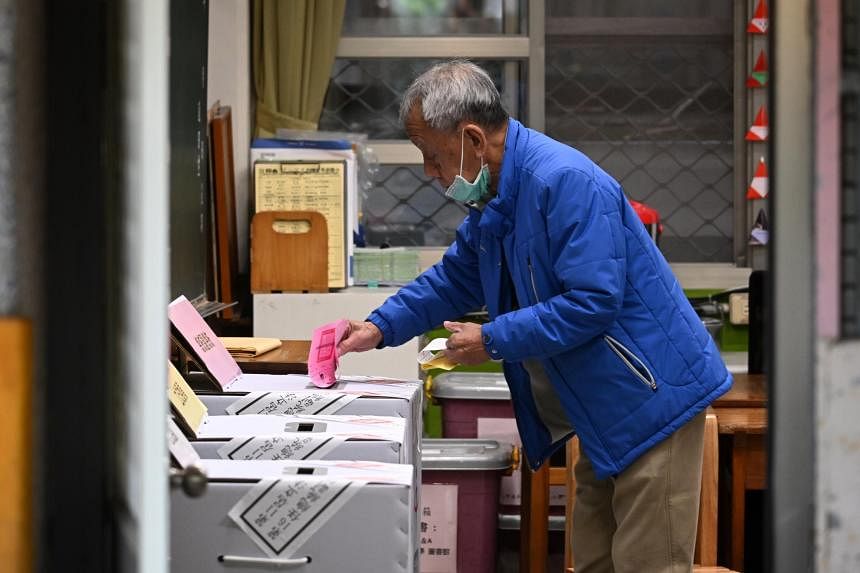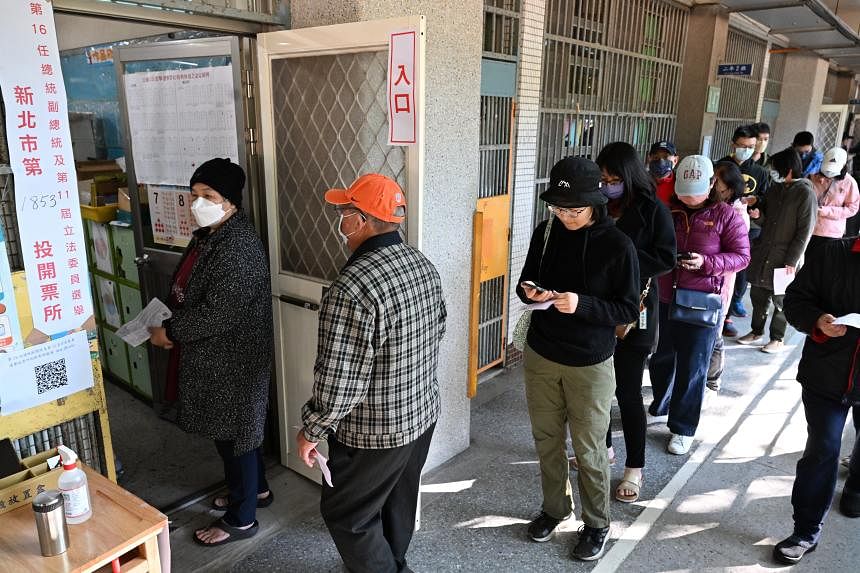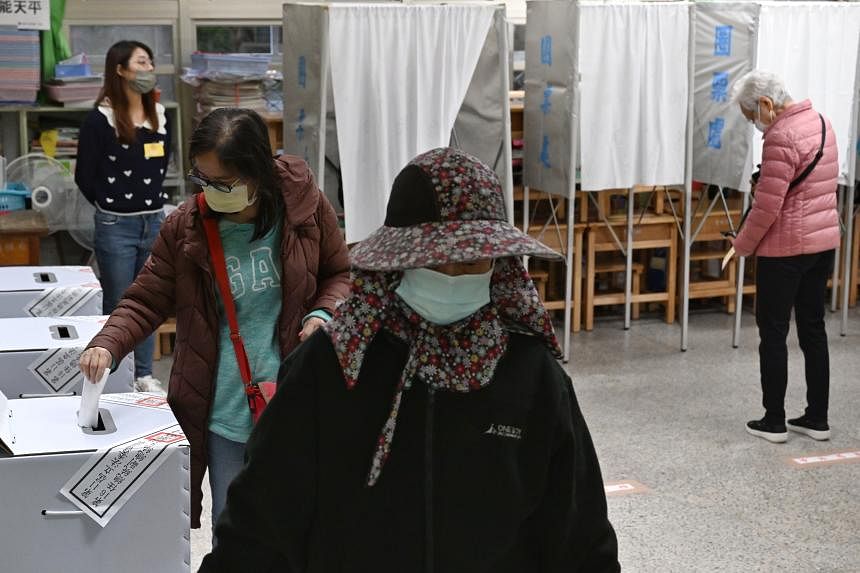NEW TAIPEI – Taiwanese retiree Chen Wen-chieh had trouble sleeping ahead of Taiwan’s critical Jan 13 presidential and parliamentary elections.
The 78-year-old, who rushed to her polling station in New Taipei’s Banqiao district even before polls opened at 8am, said that she was “too anxious”.
“I’m very worried about the future of my grandchildren. What will Taiwan look like for them?” she told The Straits Times.
Long queues had formed across polling stations in Taipei and its surrounding New Taipei on the morning of Jan 13 as Taiwanese cast their ballots in elections that will shape cross-strait relations for years to come.
Train and bus stations in and around the capital were also packed as people made their way back to their home towns – where their household registrations are located – to vote.
More than 19.5 million people are eligible to vote for their next president and legislature at 17,795 polling stations islandwide, which are mostly in schools.
In the race for the top job is incumbent Vice-President Lai Ching-te, who hopes to succeed President Tsai Ing-wen by securing an unprecedented third term for the independence-leaning Democratic Progressive Party (DPP).
Mr Lai cast his ballot at Anping Junior High in the southern city of Tainan, where he once served as mayor.
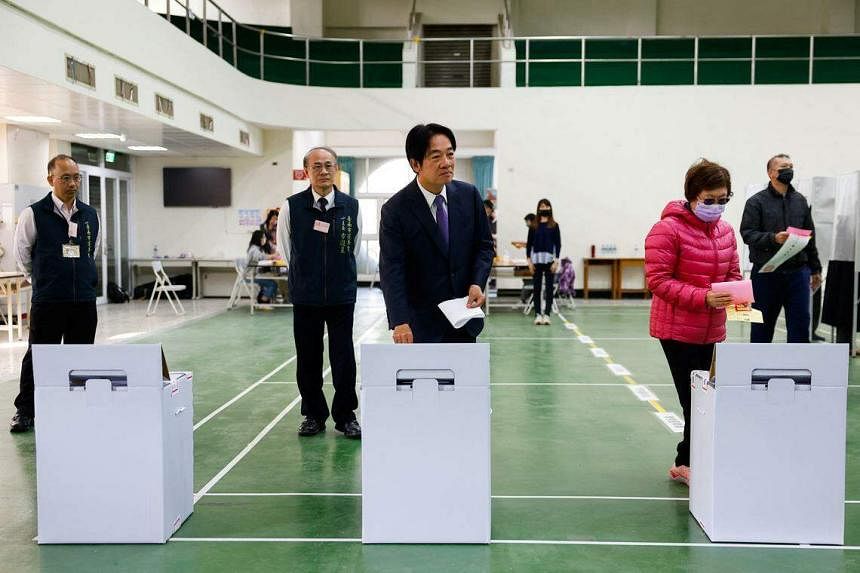
“Every vote is valued, as this is Taiwan’s hard-earned democracy,” he said.
He is challenged by Mr Hou Yu-ih of the main opposition Kuomintang and Dr Ko Wen-je of the smaller Taiwan People’s Party, both of whom are seen as more China-friendly.
Dr Ko voted at Jinou Girls High School in Taipei alongside his doctor wife Peggy Chen. Speaking to reporters after casting his ballot, Dr Ko said that he believed the voter turnout would be decent, given the sunny weather.
Dr Chen said with a laugh that her husband had slept very well the night before, adding that “he snored”.
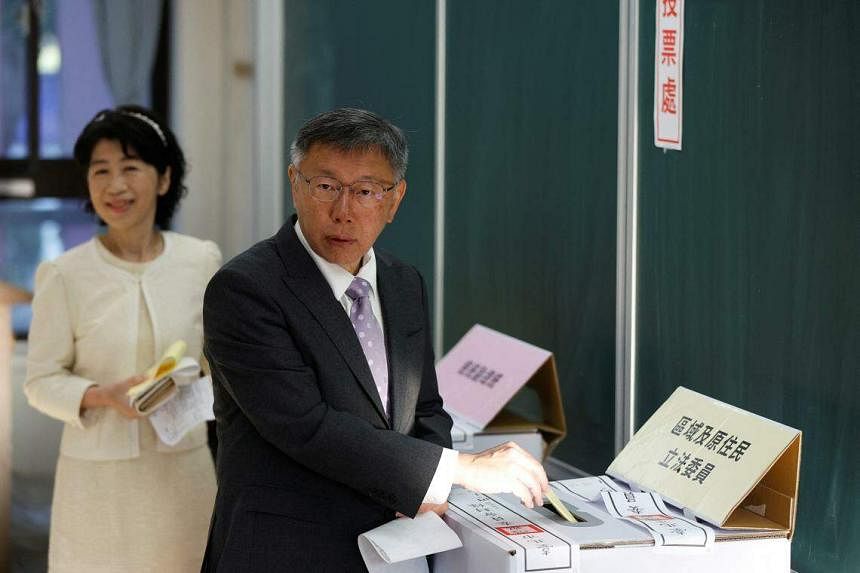
The presidential election is being closely watched by Beijing, which claims Taiwan as its territory to be reunified with the mainland one day.
Outgoing President Tsai, who cannot stand again for election owing to term limits, encouraged people to head outside “in the very nice weather” to vote.
Speaking to reporters after casting her ballot at New Taipei’s Xiulang Elementary School after 9am, she said: “Citizens in democracies can decide the future of their country with a single vote in their hands.”
Several residents cheered when they spotted Ms Tsai showing up at their polling station, and repeatedly shouted: “Hello, President.”
Over at New Taipei’s Banqiao Elementary School, Mr Hou showed reporters his “good luck charms” after casting his vote at 10.30am.
Pointing to several scars on his hands, he said: “One, two, three, four – I got these from my supporters on the campaign trail. These good luck charms are full of their passion and expectations for Taiwan’s future.”
According to the Taiwan Railways Administration (TRA), some 788,000 train tickets were sold on Jan 12, a record for the eve of an election. While many Taiwanese live and work in major cities such as Taipei and its surrounding New Taipei, they may still be registered in more remote villages or towns where they were born. No electronic or absentee voting is allowed.
To accommodate the high travel demand, the TRA added 83 train services for the weekend, it said in a statement.
Businesses have also capitalised on the election fever to offer various deals to entice people to head outdoors to vote.
Bars and restaurants are offering special dine-in promotions just for the day, as are themed parks and tourist attractions islandwide.
The Farglory Ocean Park in Hualien, in Taiwan’s remote east, for instance, promoted a “Return to Hualien to vote deal”, which provides visitors with a 50 per cent discount on their entrance tickets. As for the Seven Keba chain of izakaya restaurants across Taipei, diners can redeem free dishes if they yell to the boss: “I have voted!”
Polls closed at 4pm, with ballot counting by hand starting almost immediately.
At around 6.30pm, it was estimated that more than half of the votes had been counted. Mr Lai was leading with close to 40 per cent of the vote. Mr Hou and Dr Ko garnered around 33 per cent and 27 per cent respectively.
The results are expected to be known before the end of the night.
